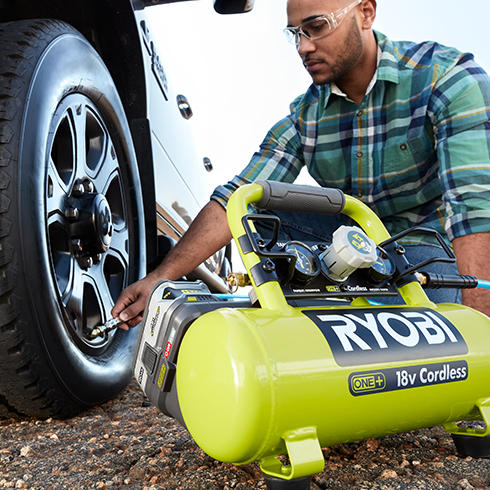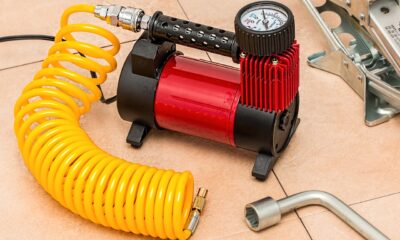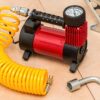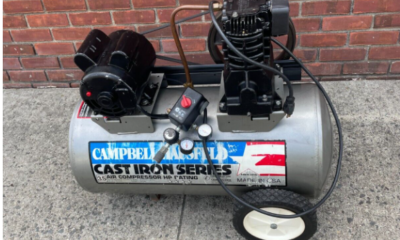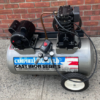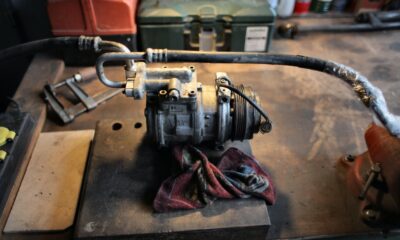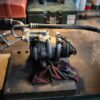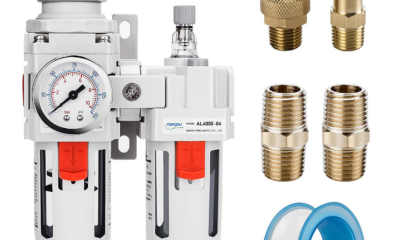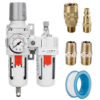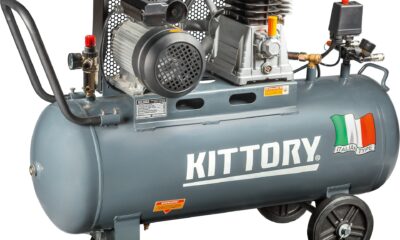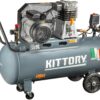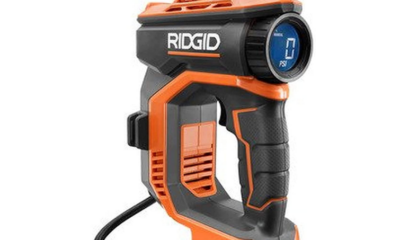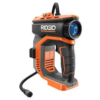What Size Air Compressor Do You Need for Filling Tires?
Many homeowners find tire inflation as a compelling reason to own an air compressor. However, it’s essential to select the right model for this task. The size and pressure requirements of your tires play a significant role in this choice.Tires on sedans, mid-size SUVs, and smaller trucks aren’t very large and only need to be filled to a recommended pressure of around 32-36 PSI. Even the smallest compressors are usually more than capable of filling these from empty. But larger tires, such as those on larger SUVs, trucks, and RVs, often require inflation up to 100 PSI. This may be too much for some portable compressors that have a lower operating PSI.
Factors While Selecting the Right Size Air Compressor for Filling Tires
Several factors determine the efficiency and suitability of an air compressor for filling tires. Let’s delve into each factor for a better understanding.
PSI
The PSI (pounds per square inch) indicates the air pressure the compressor can provide. The compressor’s PSI should at least match, if not exceed, the recommended tire pressure for efficient inflation. Typically, it’s advised to opt for a compressor with a PSI at least 10 units higher than the tire’s.
CFM
CFM (cubic feet per minute) represents the rate of air flow. A higher CFM indicates faster inflation. It’s crucial to have at least 1 CFM at the tire’s required pressure for swift filling.
Tank Size
Tank size affects the inflation speed and the compressor’s running duration. For simple top-ups, a 1-gallon tank might suffice. However, for complete inflation, especially for larger tires, bigger tanks like 3 or 6-gallon versions are more appropriate.
Duty Cycle
This determines how long the compressor pump should run. For instance, a 50% duty cycle implies the pump should operate only half the time to prevent overheating.
Cord & Hose Length
The lengths of the power cord and air hose are essential for flexibility. A longer air hose is preferred over using extension cords to avoid power issues.
Inflate Tires With a Portable Air Compressor
A portable air compressor is a handy tool for tire maintenance, ensuring longevity and fuel economy. It’s perfect for inflating various tire types, from cars to bikes and even wheelbarrows. Many small compressors, known as air inflators, are convenient for home garages and can even be stored in vehicles for emergencies.
What Size Air Compressor for Truck Tires?
Trucks come in varied sizes, from pickup trucks to semi-trailers, each having distinct tire inflation needs. Generally, larger tires demand a bigger compressor, higher CFM, and a more extended duty cycle. A personal truck might require 40-80 PSI, whereas semi-trucks can need up to 120 PSI.
Vehicle Size
Recognizing your truck’s size and tire count is crucial as they dictate the compressor’s requirements.
CFM Rating of Air Compressor
For vehicle tire inflation, at least 2 CFM is recommended. Although some inflators with less than 1 CFM work efficiently, larger trucks might need over 10 CFM for smooth operation.
PSI Capabilities of Air Compressor
Ensure your air compressor can offer the PSI your truck’s tires demand. Always aim for a compressor capable of operating at 125 PSI for versatility and future-proofing.
Frequently Asked Questions
1. Why is it important to have the right air compressor for inflating tires?
Answer: The right air compressor is vital for maintaining the tire’s shape, ensuring safety, and prolonging its life. An inappropriate compressor can lead to uneven wear, decreased fuel efficiency, and even tire failure.
2. Will A 6 Gallon Air Compressor Fill A Car Tire?
Answer: Yes, a 6-gallon air compressor is capable of inflating a car tire. However, always refer to the owner’s manual or the tire for the exact PSI requirements. Pancake compressors, though compact, can also efficiently inflate tires.
3. Which air fill in car tyres?
Answer: While regular air can be used, Nitrogen is often recommended for its larger molecules, which seep slower through the tires, maintaining inflation pressure longer.
Whether you own a bike, car, or truck, ensuring the tires are adequately inflated is crucial. Choose the right air compressor based on your requirements for safe and efficient tire maintenance.
Takeaway
The right air compressor plays a pivotal role in efficient tire inflation and maintenance. Considering factors like PSI, CFM, tank size, and duty cycle is crucial in making an informed choice. Whether you’re dealing with smaller sedan tires or those of larger trucks, understanding your requirements and aligning them with the compressor’s capabilities ensures longevity, safety, and optimal performance of your tires. Always prioritize your specific needs and vehicle specifications when choosing an air compressor.
Shaleen is a Journalism postgraduate, and like every other gen-z, loves a good dose of humor, Italian food, fashion trends, and TV series. She is an acomplished author and expert in the field of air compressors. Shaleen discovered her passion for technical products and gadgets early in life, which drove her research and write about it.

